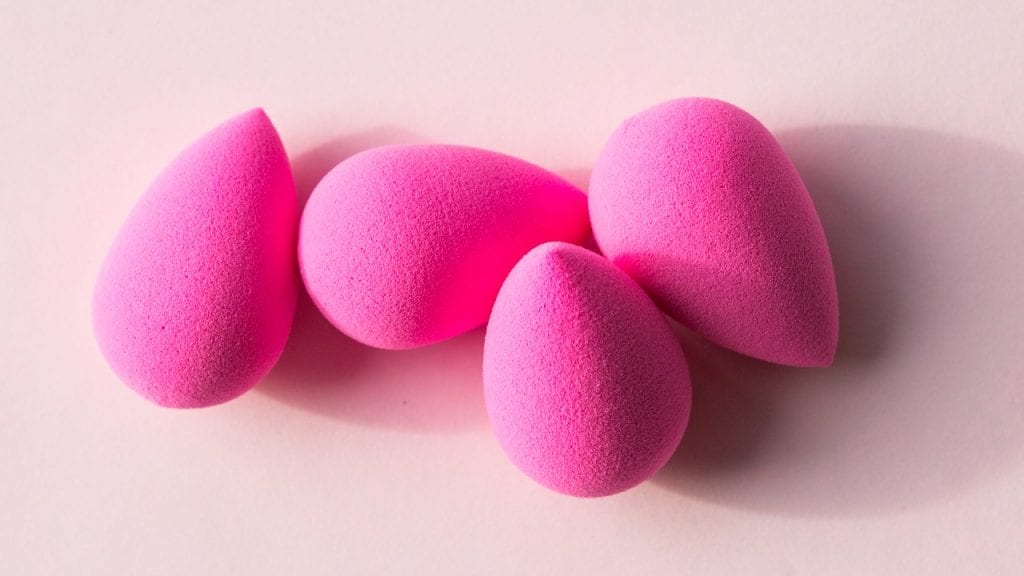In 2003, Hollywood makeup artist Rea Ann Silva launched a “one-of-a-kind edgeless makeup sponge that delivers a professional airbrush effect without actually using an airbrush.” Since then, the market has exploded with copycat and counterfeit versions of the popular makeup applicator, as well as authentic beauty blender products that have found their way out of the brand’s authorized distribution chain and onto the shelves of off-priced retailers as the product has become a bona fide beauty staple across the globe.
That is precisely how beautyblender’s hot pink egg-shaped sponges ended up in Costco and T.J. Maxx stores, the company asserts in a newly-filed lawsuit. According to the complaint that beautyblender filed in a federal court in California late last week, Costco and T.J. Maxx – despite not being on its list of authorized retailers – are “illegally” offering up beautyblender products in their stores and online.
But beautyblender is not suing either of the American retail giants for stocking its sponges without approval. Instead, it has filed suit against German beauty distributor New Flag, which is, in fact, a beautyblender authorized retailer for Germany, Austria, and Switzerland, as well as in the Czech Republic and Slovakia.
In accordance with its distribution deal with beautyblender, in furtherance of which it supplies other retailers with the brand’s products, “New Flag agreed not to directly ship beautyblender products outside of [that specific territory] or knowingly permit such activity to be conducted by any entity,” among other things, per beautyblender.
Yet, “In the course of [its market] monitoring,” beautyblender says that it “discovered that products bearing the beautyblender trademark were being sold” in Costco and T.J. Maxx stores in the U.S., as supplied to these retailers by New Jersey-based White Diamond Cosmetics, Ltd.
How did White Diamond, which is also not an authorized beautyblender retailer, get the products? “Using the barcodes on the products [it had] purchased from Costco [and T.J. Maxx] in the U.S., beautyblender was able to determine that the products were originally supplied to New Flag,” the company asserts in its lawsuit.
Beautyblender argues that because the products it ordered from T.J. Maxx and Costco were “materially different from the products sold by beautyblender and its authorized dealers in the U.S.,” they are not “genuine,” and instead “constitute illegal gray market goods,” a terms that refers to authentic branded goods obtained from one market (i.e., a country or economic area) that are subsequently imported into another market and sold there without the consent of the trademark holder
In particular, beautyblender claims that the unauthorized goods being sold by T.J. Maxx and Costco “had been subjected to tampering by having certain anti-counterfeiting measures removed” and also contained German-language instructions inserts. More than that, the products at issue are “materially different,” in the eyes of beautyblender because the company “is deprived of the means to control their quality or to respond to customer complaints and negative reviews.”
With the foregoing in mind, beautyblender asserts claims of breach of contract and breach of the covenant of good faith and fair dealing in connection with its distribution agreements with T.J. Maxx and Costco, as well as claims of contributory trademark infringement and unfair competition. It is seeking monetary damages to be determined at trial; injunctive relief, which would immediately and permanently bar the retailers from distributing any “gray market” beautyblender products in the U.S.; and an order requiring the impounding and eventual destruction of any of the infringing goods distributed by the defendants.
As for why beautyblender has not named the retail culprits, T.J. Maxx and Costco, in its lawsuit, that is, at least in part, because it is not – on its face – illegal for a retailer to offer up authentic products even if it is not in the brand’s authorized distribution network, and while beautyblender may assert that the products have been tampered with, it does not claim they are counterfeit, thereby, letting the off-price retailers off the hook. It is also helps, of course, that unlike New Flag, which entered into a distribution contract with beautybender, T.J. Maxx and Costco are not bound by no such terms.
*The case is REA.DEEMING BEAUTY INC. d/b/a BEAUTYBLENDER v. NEW FLAG GMBH, 2:19-cv-04511 (C.D.Cal).











